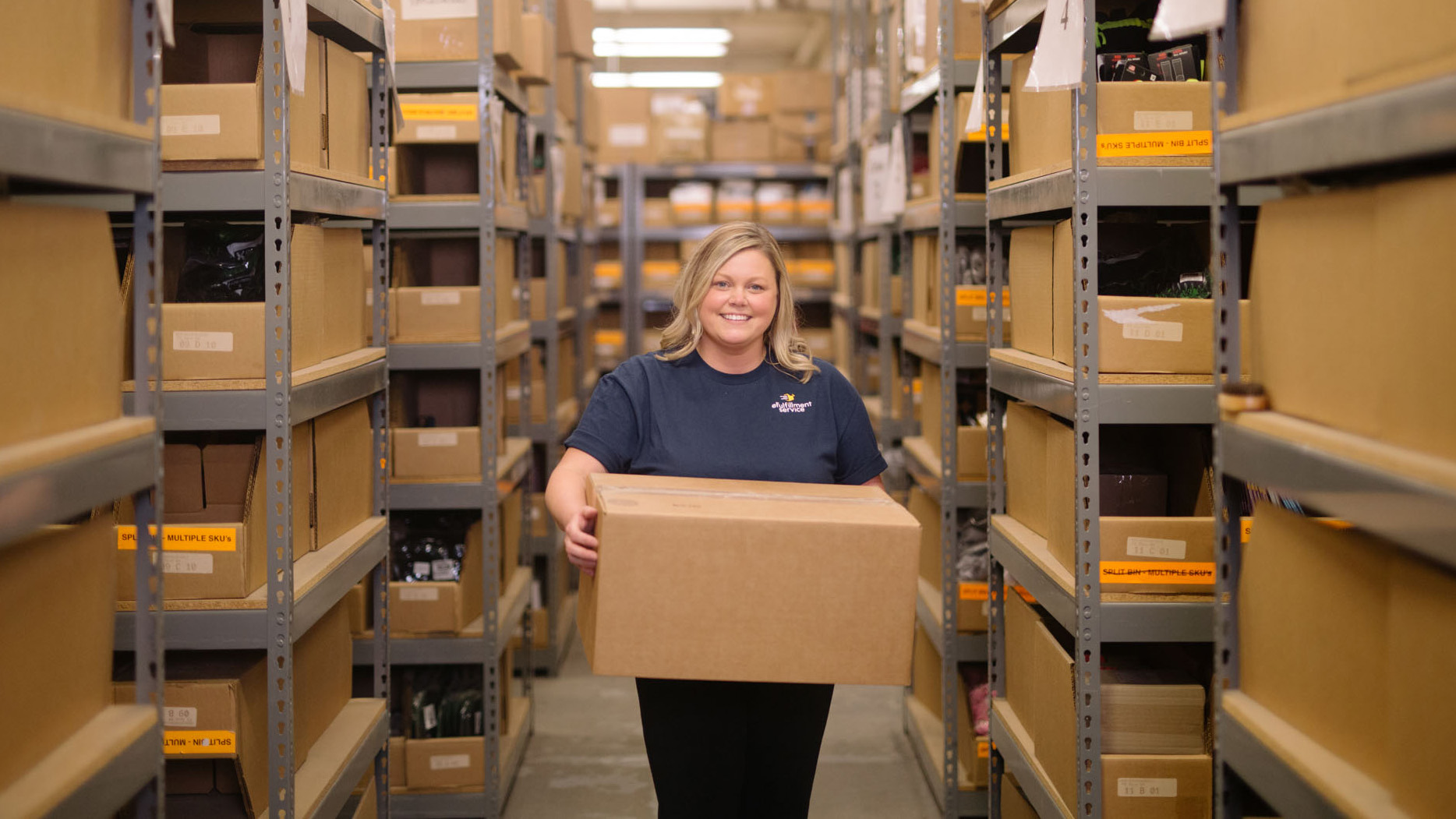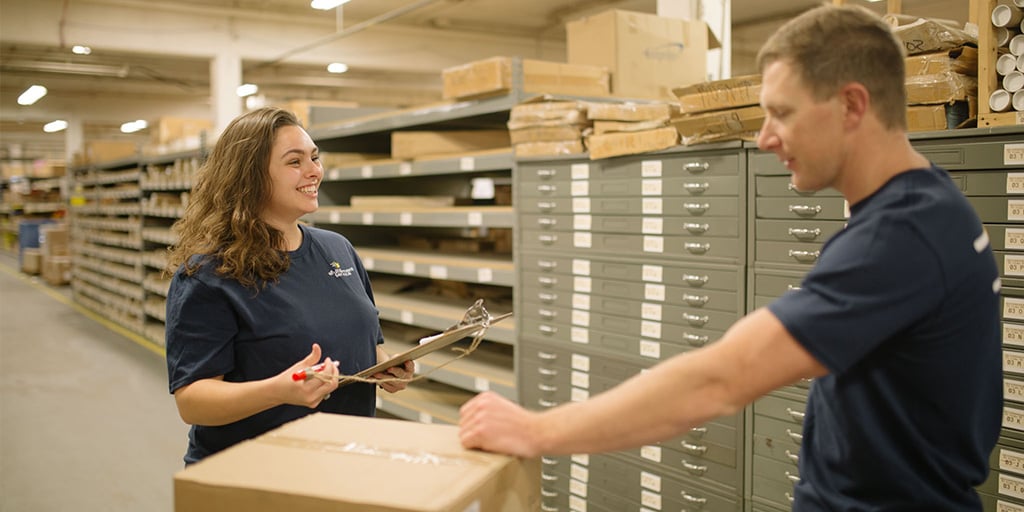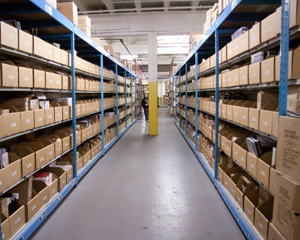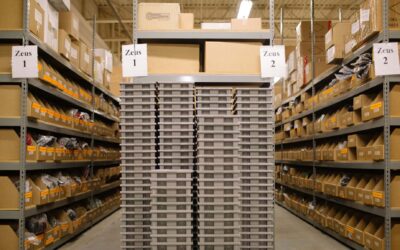
In today’s fast-paced business landscape, e-commerce has become a driving force behind the success of many companies. As online sales continue to surge, the need for efficient and reliable order fulfillment has never been more crucial. When it comes to fulfilling customer orders, businesses face a choice: outsourcing fulfillment to a third-party logistics provider (3PL) or handling it in-house.
In this article, we’ll explore the advantages of outsourcing fulfillment to a 3PL and the potential drawbacks of managing fulfillment internally.
Jump right in: Outsourcing Fulfillment vs. In-House Fulfillment
Overview of In-House Fulfillment (Self Fulfillment)

What is In-house Fulfillment (Self-Fulfillment)?
In-house fulfillment refers to the practice of handling the entire order fulfillment process within a company’s own facilities and resources. This approach involves establishing and managing an internal logistics and fulfillment operation, which includes tasks such as inventory management, order processing, packaging, shipping, and returns management.
By choosing in-house fulfillment, businesses retain complete control over the entire fulfillment process, allowing for greater customization and flexibility. However, it also comes with certain challenges and considerations.
Overview of Outsourced Fulfillment (3PL)

What is Outsourced Fulfillment?
Outsourced fulfillment, specifically to third-party logistics providers (3PLs), is a business strategy where a company partners with an external service provider to handle various aspects of the order fulfillment process. 3PLs specialize in logistics and supply chain management, offering a range of services tailored to meet the unique needs of businesses across different industries.
By outsourcing fulfillment, businesses can leverage the expertise, infrastructure, and resources of the 3PL to streamline their order fulfillment operations.
Services Provided by Outsourced Fulfillment Companies (3PLs)
Inventory management: 3PLs can manage and track inventory levels, ensuring optimal stock availability and minimizing the risk of stockouts or excess inventory.
Order processing: 3PLs handle order processing tasks, including order verification, picking, packing, and labeling, ensuring accurate and timely order fulfillment.
Warehousing and storage: 3PLs provide warehousing and storage facilities to securely store products and optimize inventory storage and organization.
Transportation and shipping: 3PLs handle transportation logistics, including selecting carriers, arranging shipping routes, and managing the shipping process to ensure timely and cost-effective delivery.
Returns management: 3PLs manage the process of handling customer returns, including product inspections, restocking, and inventory updates, to streamline the returns process and customer satisfaction.
Packaging and kitting: 3PLs can assist with packaging design, customized kitting, and assembly services to meet specific product requirements or promotional needs.
Value-added services: 3PLs may offer additional value-added services such as labeling, customization, quality control, product configuration, or specialized handling (e.g., hazardous materials).
Technology and software solutions: 3PLs provide access to advanced fulfillment technologies, order management systems, inventory tracking systems, and reporting tools to enhance visibility and control over the fulfillment process.
Customer support: Some 3PLs offer customer support services, including order status inquiries, issue resolution, and handling customer inquiries, to ensure a seamless customer experience.
Supply chain consulting: 3PLs with extensive industry experience may provide supply chain consulting services, offering insights and recommendations to optimize supply chain operations and improve efficiency.
Pros of Outsourcing Fulfillment to a 3PL:

Cost Savings
One of the primary advantages of outsourcing fulfillment to a 3PL is cost savings. Setting up an in-house fulfillment operation requires significant investments in infrastructure, warehousing space, technology, and hiring and training staff.
On the other hand, partnering with a 3PL allows businesses to leverage the provider’s existing infrastructure, expertise, and economies of scale. This eliminates the need for large upfront investments and enables businesses to benefit from shared resources, resulting in reduced costs.
Scalability and Flexibility:
As businesses grow and experience seasonal fluctuations in demand, scalability and flexibility become crucial. 3PLs are designed to handle fluctuations efficiently. They have the expertise and infrastructure to quickly scale up or down as per the business’s needs, ensuring seamless order fulfillment even during peak seasons.
Outsourcing fulfillment to a 3PL allows businesses to tap into this flexibility, enabling them to focus on core competencies, such as product development and marketing.
Expertise and Specialization:
Fulfillment is a complex process involving inventory management, order processing, packaging, shipping, and returns management. By outsourcing to a 3PL, businesses can leverage the expertise and specialization of professionals dedicated to these areas.
3PLs have in-depth knowledge of logistics, supply chain management, and fulfillment operations. They stay up-to-date with industry best practices, technology advancements, and regulations, ensuring efficient and accurate order fulfillment.
Improved Customer Experience:
Outsourcing fulfillment to a 3PL can lead to an enhanced customer experience. 3PLs are equipped with advanced technologies, order tracking systems, and efficient inventory management tools that streamline the fulfillment process. This results in faster order processing, accurate inventory updates, and prompt shipping, leading to happier customers.
Additionally, 3PLs often offer multiple shipping options, enabling businesses to provide faster and more cost-effective delivery to customers, thereby increasing customer satisfaction.
Is it time for your business to start outsourcing your fulfillment?
Check out our article “5 Signs It’s Time to Outsource Your Order Fulfillment” to find out if it’s time for your business to make the switch!

Cons of Handling Fulfillment In-House:

Infrastructure and Resources:
Establishing an in-house fulfillment operation requires substantial investments in infrastructure, such as warehousing space, equipment, and software systems. Moreover, managing fulfillment in-house necessitates hiring and training a dedicated fulfillment team, which adds to the overhead costs.
Small and medium-sized businesses might find it challenging to allocate the necessary resources and expertise to set up and manage an efficient fulfillment process internally.
Limited Scalability:
In-house fulfillment operations often lack the scalability and flexibility offered by 3PLs. Businesses that handle fulfillment internally might struggle to handle sudden spikes in order volumes or seasonal fluctuations, resulting in potential bottlenecks, delays, and increased customer dissatisfaction.
Scaling up or down an in-house operation can be time-consuming, requiring additional investments and resources, which might not be feasible for all businesses.
Expertise and Operational Challenges:
Managing fulfillment in-house requires expertise in logistics, inventory management, and order processing. Businesses that lack experience in these areas may face challenges and inefficiencies, leading to errors, delays, and higher costs.
Moreover, keeping up with ever-changing industry trends, technologies, and compliance requirements can be overwhelming for businesses focusing on their core competencies. This lack of specialization can negatively impact the efficiency and accuracy of the fulfillment process
Opportunity Cost:
Handling fulfillment internally can divert valuable time, resources, and attention away from core business activities, such as product development, marketing, and customer engagement. Businesses may find it more beneficial to focus on their areas of expertise and leave fulfillment to professionals who can efficiently manage the process.
By outsourcing fulfillment, businesses can free up resources and concentrate on strategic growth initiatives, potentially leading to increased profitability and market competitiveness.
Summary
While the decision to outsource fulfillment to a 3PL or handle it in-house depends on various factors, outsourcing offers significant advantages. Cost savings, scalability, expertise, and improved customer experience are compelling reasons to consider partnering with a 3PL.
While in-house fulfillment provides more control, it often comes with higher costs, limited scalability, and operational challenges. Ultimately, businesses must carefully evaluate their unique needs, resources, and long-term goals to make an informed decision that aligns with their growth strategy.




0 Comments